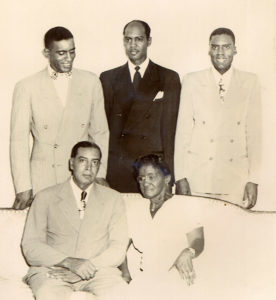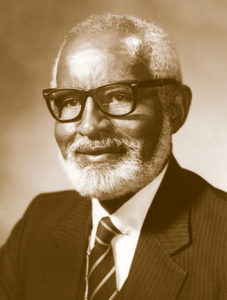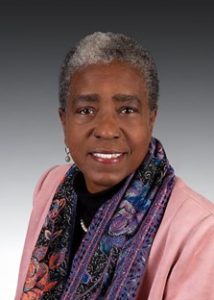calsfoundation@cals.org
A Family in Bloom: The Legacy of William Harold Flowers
A series of articles on Arkansas’s Black role models appeared in the Arkansas Democrat in February 1989. Thomas Sissom, with the paper’s Pine Bluff bureau, wrote his article about William Harold Flowers. The first line is: “Family is most important to Harold Flowers, and his includes anyone who can share his philosophy of caring for others.”


William Harold Flowers is known for his legal and ministerial career. Less attention has been paid to his career as a parent. Throughout his life, the son of Alonza (or Alonzo) Williams Flowers and Beulah Sampson Flowers would share his knowledge of what love meant to his immediate family, his Pine Bluff community, his state of Arkansas, his country, and the world.
His mentorship allowed many to claim him as a father. In scholarship and general guidance through the journey called life, he counseled, pushed, advised, and persuaded individuals to choose wisely and consider the responsibilities related to their choices. His service to the law beginning in 1938 was a tangible example of parental guidance, as his mother is the reason Arkansas became the beneficiary of his talent. After witnessing the lynching of John Carter on the streets of Little Rock in 1927, he swore never to return to the city. Words from his mother, however, were, “This is where you’re needed. This is where you can do the most good for your people.”
The legacy of “his good” as prescribed by his mother includes the children he fathered who went on to have the grandchildren, great-grandchildren, and great-great-grandchildren who live today knowing the name Flowers as famous and experiencing some of the personal language of that love shared through the memories of his children.
At his death in 1990, he and his wife had buried a daughter; she died while she was a student at a Houston, Texas, college in the 1960s. Their surviving children, at his death, included son William Harold Flowers Jr. and daughter Stephanie A. Flowers, who both practiced law as a profession (Stephanie also serves as a state senator in Arkansas); Gretchen Flowers Scarbrough, who shared her father’s love with the students she encountered in higher education circles in the Houston area; and Arthur K. Flowers, Alonzo W. Flowers II, Alfred L. Flowers, Thurman H. Flowers, and Daphne Flowers, who were lower profile but shared their father’s love through more personal actions that are not publicized, yet have as much of an impact on those who received their gift of love as friend, neighbor, classmate, military buddy, or co-worker.

The seed of love planted by W. Harold Flowers in his children continues to bear fruit in the communities they live in through the lives they’ve touched.
Find out more about W. Harold Flowers in the research room in the CALS Bobby L. Roberts Library of Arkansas History & Art by accessing the newspaper clipping file, ancestry databases, county historical journals, and city directories; all document some element of his life. And read more about Flowers and his many accomplishments in the CALS Encyclopedia of Arkansas here.
The header photo shows the Flowers family posed in front of the And So Shall She Reap: The Seeds of Beulah Flowers exhibit at the University of Arkansas at Pine Bluff (UAPB).
By Rhonda Stewart, Genealogy/Local History Specialist, CALS Roberts Library




